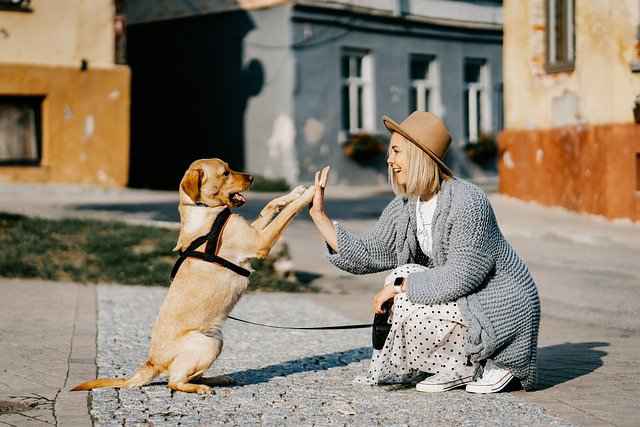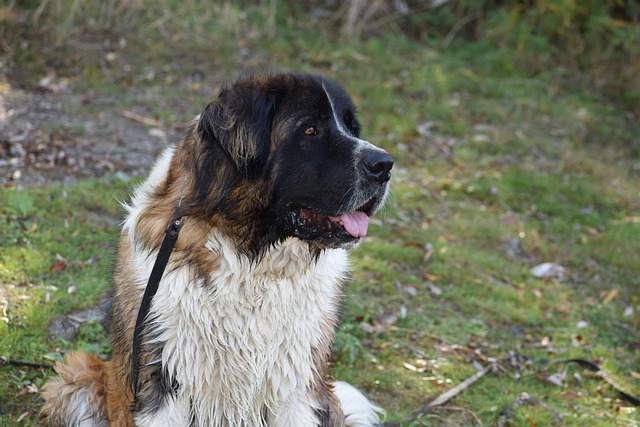Are Pomeranians Aggressive [Triggers & Control Tips]
![Are Pomeranians Aggressive [Triggers & Control Tips] Are pomeranians aggressive](https://petcreeks.com/wp-content/uploads/2022/01/Are-pomeranians-aggressive.jpg)
All dogs do show aggression at one point or the other, but are Pomeranians aggressive breed of dogs? Let’s find out more together!
In this post, since Pomeranians are not aggressive, we will outline and discuss some common aggressive triggers that can lead to your Pomeranian becoming unnecessarily aggressive.
We will also discuss, signs of aggression, types of aggression, and ways to control aggression in Pomeranians if your Pomeranian decides to become aggressive.
Before we dive into all that, let me answer your question are Pomeranians aggressive in a short paragraph then we roll on!
Are Pomeranians Aggressive
Pomeranians breed generally have a very loving personality and naturally friendly behavior and are not renowned for being vicious canines because they were created to be human companions.
They are non-aggressive against other dogs and make ideal family pets.
Pomeranians can become violent as a result of inadequate socialization, fear, anxiety, possessive behavior, and, most significantly, the owner’s lack of proper training or behavioral instruction.
Signs of aggression in Pomeranians
You should be aware of the following typical indicators of aggression in Pomeranians:
- Growling
- Biting
- Snarling
- Snapping
- Teeth bared
- Hard stare
- Lunging
Types of aggression found in Pomeranians
Here are some of the most typical forms of aggressiveness in Pomeranians:
- Possessive aggression
- Protective aggression
- Pain-Related aggression
- Fear aggression
- Territorial aggression
What causes aggressive behaviors in Pomeranians
Here are some of the most prevalent causes of aggression in Pomeranians:
If you can’t get your Pomeranian to interact, he’ll ultimately attack a guest or other dogs, earning them the title of “aggressive dog.”
A Pomeranian that is confined in your yard and trained without being taken on walks or mingling with other dogs, pets, or even humans is considered unsocialized.
It’s likely that your Pomeranian is utterly oblivious to his surroundings, this leads to unnecessary behaviors like aggression.
One of the most common reasons for aggressive behavior in Pomeranians is a lack of proper socialization.
2. Frustration
There are several variables that contribute to a Pomeranian’s high degree of aggressiveness when he is frustrated.
Paying less attention than normal, neglecting the dog, disrupting the dog’s food habits, and so on.
Pomeranians are little companion dogs that are easily scared or saddened by loud noises or abrupt changes in routine.
Pomeranians that are frustrated are more inclined to do unexpected things, so make sure yours is pleased with all times.
To deal with a frustrated Pomeranian, you must first identify the source of the problem and eradicate it as quickly as feasible.
When the Pomeranian demands your attention, don’t ignore them or leave them alone for too long. Check to see whether your Pomeranian is upset.
3. Flashback of traumatic experience
A traumatic event can occur, and it is one of the most prevalent reasons for aggressive behavior in Pomeranians.
According to Vetmed, rescue dogs suffer from anxiety or post-traumatic stress disorder (PTSD) as a result of previous trauma.
Any Pomeranian who has been exposed to trauma before is in danger of developing behavioral problems.
It might be a one-time occurrence or the result of years of abuse.
Pomeranians that have been exposed to harsh or aggressive family life are more likely to suffer emotional problems.
As a conditioned self-protective reaction, they become afraid and aggressive.
4. Possessive instinct
Pomeranians are noted for their steadfast devotion to their owners and valued things, which can cause unnecessary aggression when you try to mess around with them.
It’s conceivable that your Pomeranian is defending you by acting violently towards someone approaching you.
They care about you and don’t want anything to go wrong with you.
You may take actions to prevent your dog from acting aggressively in the future once you know what’s triggering their hostility.
5. Fear
When they sense they are in danger and are unable to flee, the majority of Pomeranians become aggressive. They feel compelled to defend themselves as a result.
This can happen if a Pomeranian is surrounded and has no way out, or if he believes a hand over his head indicates he’ll be slapped.
To prevent instilling aggressive behavior in your Pomeranian, approach them with caution, or better yet, allow them to approach you.
Begin teaching and socializing your Pomeranian while he is still a puppy to help him avoid future suffering.
When dogs are threatened at any hour of the day or night, they become violent against other humans or animals in the area.
6. Separation anxiety
Separation anxiety in Pomeranians is a condition in which a dog becomes worried and exhibits behavioral problems when separated from its owner for an extended period of time.
Smaller breeds, such as Pomeranians, might develop separation anxiety and begin barking continuously within minutes of their owners leaving.
Although little dogs are more likely to yelp, it’s unclear why some dogs experience separation anxiety while others do not.
This is one of the most prevalent issues Pomeranian owners face, and it’s usually the result of a lack of fundamental training.
Separation anxiety causes a Pomeranian to become aggressive and bark excessively, necessitating intervention.
7. Canine illnesses
A canine illness is a medical condition or stage that affects a dog’s body or psyche.
Ingesting tainted food or viruses, as well as injuries, insect bites, and parasite infections, can all play a role.
When your Pomeranian is sick and you ignore the signs, he will usually turn against you, your family, and other pets.
As a result of its sickness, a sick Pomeranian is always irritable and will attack other dogs of any size.
The disease can be caused by parasites, fungus, bacteria, viruses, and other pathogens, to name a few.
This can be caused by the environment or by eating certain foods, both of which can be prevented with proper hygiene.
8. Lack of proper obedience training
This is the most thorough response to your question about why my Pomeranian becomes aggressive with other dogs.
70 percent of canine aggression toward other dogs, people, or other pets is due to insufficient training.
As a result, you must provide proper training to your Pomeranian in order to lessen or eradicate animosity against other dogs or humans.
Despite the fact that proper training decreases aggression, most Pomeranian owners regard training as simply another way to feed their dogs.
9. Neglect or abuse
Pomeranians’ aggression is triggered by a lack of attention. There are a few things you should do to properly care for your Pomeranian.
When your Pomeranian does anything wrong, instead of shouting at him, correct him. Make sure your dog eats high-quality food.
Don’t forget to groom your Pomeranian and give him or her the attention and exercise he or she requires.
How to control aggression in Pomeranians
While Pomeranians become aggressive for a variety of reasons, here are some common ways for resolving, avoiding, or reducing aggression in Pomeranians:
Allow your Pomeranian to socialize with other dogs as well as people. In a non-threatening and suitable manner, introduce them to other dogs or humans.
If your chihuahua has engaged pleasantly and hasn’t been enraged, don’t praise them.
Keep a watch on your Pomeranian if he or she is interacting with other people since they can turn violent or enraged at any time.
If they get hostile, get rid of them as quickly as possible to avoid biting someone.
Do not give your Pomeranian treats or pet or carry them if they appear irritated or aggressive.
- Register them for puppy classes.
- Take them to dog parks.
- Take them to visit other dog owners.
- Take them for evening walks.
- Go camping with them.
- Take them to dog shows.
- Take them to beaches.
- Go shopping with them.
- Invite other dog owners.
2. Begin consistent obedience training sessions
Even though obedience training appears to be a pain, trust me when I say it is well worth the effort.
When you have a well-behaved Pom by your side, you’ll admire your prior self for putting in the work.
Simple instructions and behavior training are used in obedience training, and offer treats watermelon as a reward to command.
It’s intended to offer you more control over your dog’s behavior as the owner.
Finally, this offers a safer environment for dog owners, dogs, and members of the public who come into contact with the dog on a regular basis.
3. Avoid all forms of aggressive triggers
If you could specify a specific reason for Pomeranian’s aggressive behavior, it would be excellent.
Make their lives as simple as possible by avoiding situations or activities that provoke hostility.
While not all aggressive Pomeranian triggers may be avoided, the majority of them can be avoided with sufficient effort.
If your Pomeranian, for example, is terrified of new animals in the house, it’s best not to bring any more animals in.
4. Create and stick to a daily routine
If you want to assist your Pomeranian to become less aggressive, don’t mess with his eating regimen or space.
Make a plan of action for your Pom and follow it. When your Pomeranian isn’t napping, make sure he has something to do.
If you change your Pomeranian’s food schedule, adhere to it until your expectations and those of your Pomeranian are no longer fulfilled.
If you alter your Pomeranian’s diet, he will feel abandoned and ignored, so try to stick to what is currently working for you.
5. Try desensitization
In a calm, controlled atmosphere, desensitization requires utilizing a very weak variant of the issue stimulus.
To reduce the impact of reactivity toward other dogs, increase the spacing between them.
Our dog’s alertness is also decreasing, allowing him to learn and listen in a more relaxed manner.
This is necessary in order to create conditions in which your Pomeranian may learn to be calm and relaxed in the presence of other dogs.
6. Provide your Pomeranian basic needs
Pomeranian dogs like being lavished with care and attention, which might assist them from being overly aggressive.
When your Pomeranian does something you like, give them a positive reward, and connect aggressiveness with negative conduct.
Praise them and provide them with treats. If they engage in behavior that you don’t like, ignore them for a while.
You’ll need to be persistent and patient to help your Pomeranian figure out which activities you enjoy and which behaviors you don’t.
7. More mental stimulation and exercise
If your dog isn’t given enough mental stimulation and exercise, he or she will exhibit dangerous habits and behaviors as a result.
Because of their small stature, a daily routine of 15 to 30 minutes is plenty to keep your Pomeranian occupied.
Take your dog for walks and short runs to promote his healthy growth.
Toys, video games, TV shows, and other forms of amusement are also available.
8. Talk to your Vet
In some cases, training alone is insufficient. Aggressive dogs may require medicine to help them regulate their behavior.
It’s critical to realize that a dog suffering from fear, tension, or anxiety is unable to learn new things.
Consider medicine as a tool for assisting your dog in overcoming this phobia. Many dogs will only require medicine for a short period of time. Consult your veterinarian for further information.
9. Never punish for aggression
Punishing your Pom for aggressive behavior almost always backfires and makes the situation worse.
If you strike, shout, or use another unpleasant way to deal with a growling dog, the Pom may feel compelled to protect itself by biting you.
Your Pom may bite someone else without notice as a result of the punishment. A Pom who growls at youngsters, for example, is expressing his discomfort in their presence.
If you penalize a Pomeranian for growling, the next time he feels uneasy, he may bite instead of warning you.
10. Talk to an experience dog trainer
It’s time to see a professional dog trainer or animal behaviorist if your vet has ruled out a medical issue.
You should not attempt to treat aggressiveness on your own because it is such a serious issue.
A specialist can assist you in determining what is causing your dog’s aggressiveness and developing a plan to address it.
I hope your question are Pomeranians aggressive was answered!
Read more: Why Do Pomeranians Bark So Much (10 Triggers & Control Tips).

![How To Socialize a Beagle [9 Useful Hints] How To Socialize a Beagle](https://petcreeks.com/wp-content/uploads/2023/05/How-To-Socialize-a-Beagle-768x555.jpg)




![How To Calm a Beagle Down [12 Interesting Hints] How To Calm a Beagle Down](https://petcreeks.com/wp-content/uploads/2023/05/How-To-Calm-a-Beagle-Down-768x555.jpg)